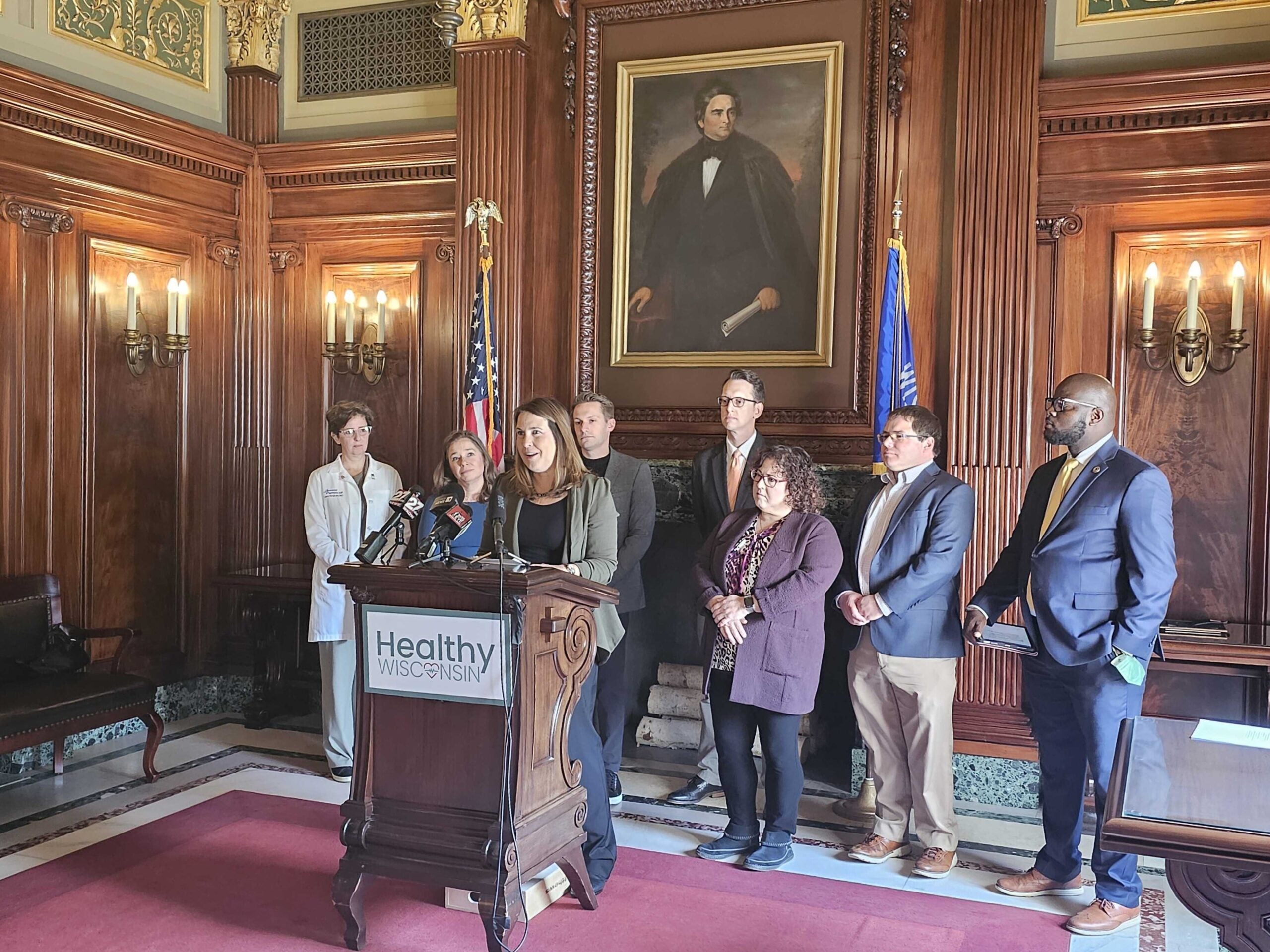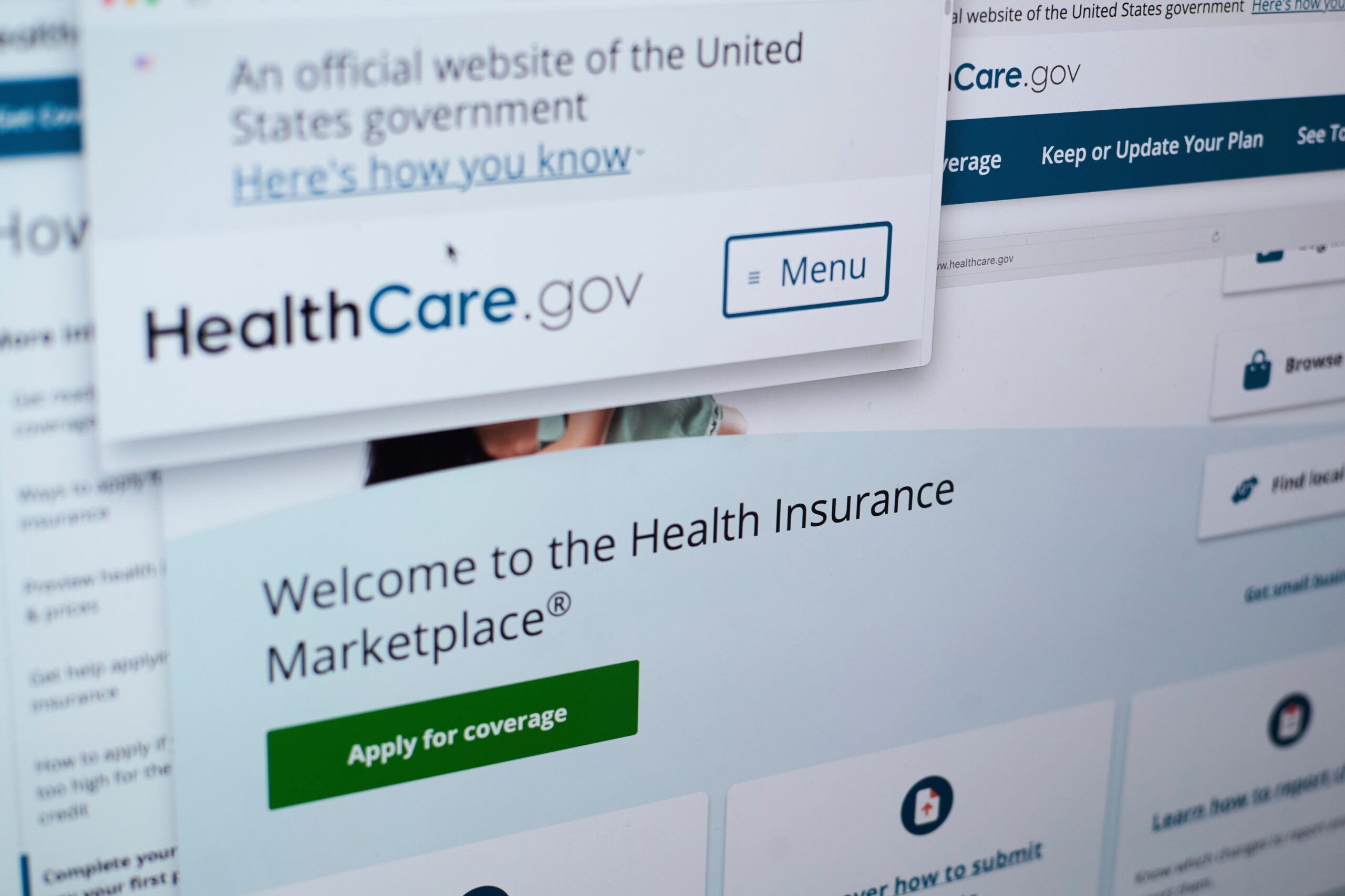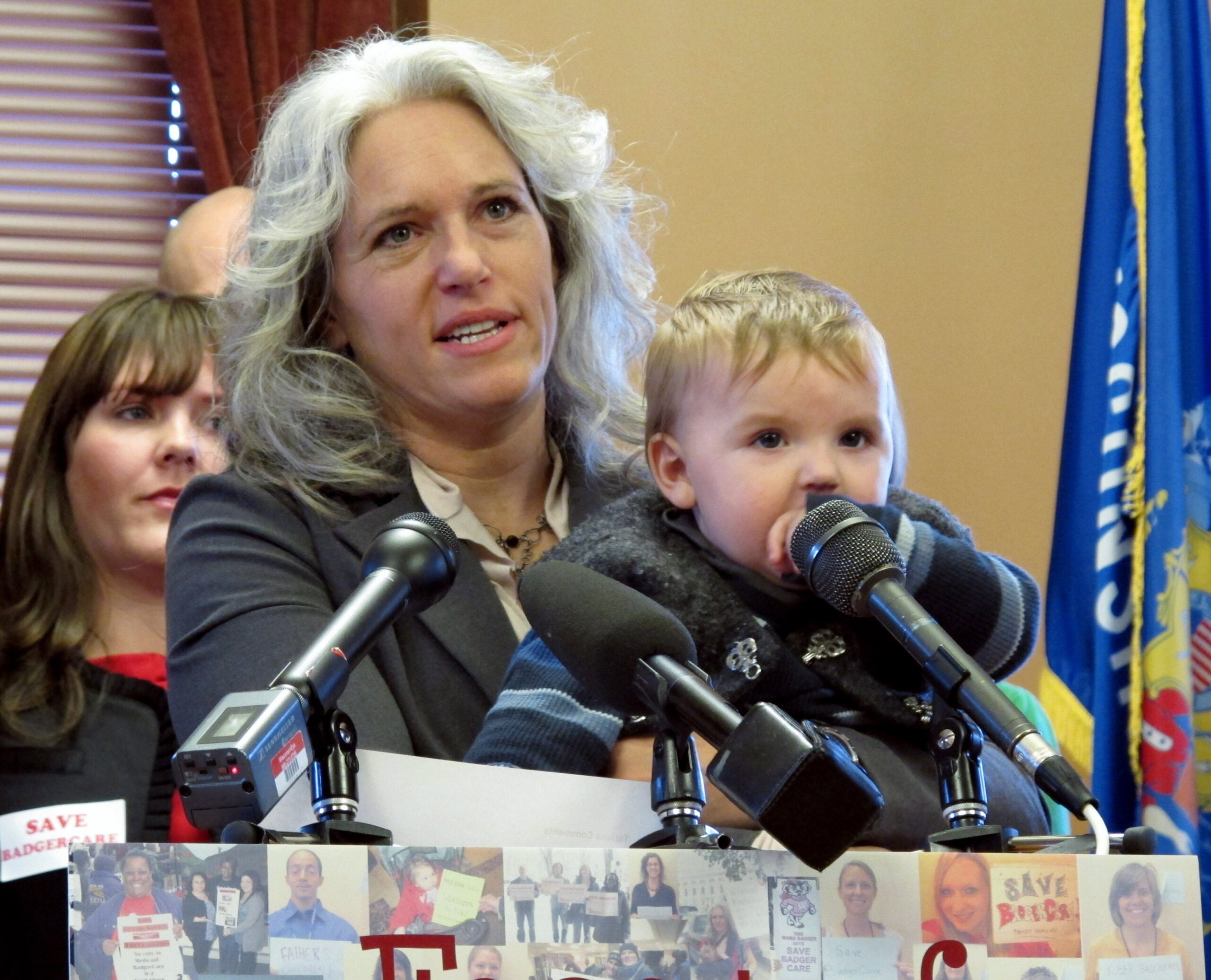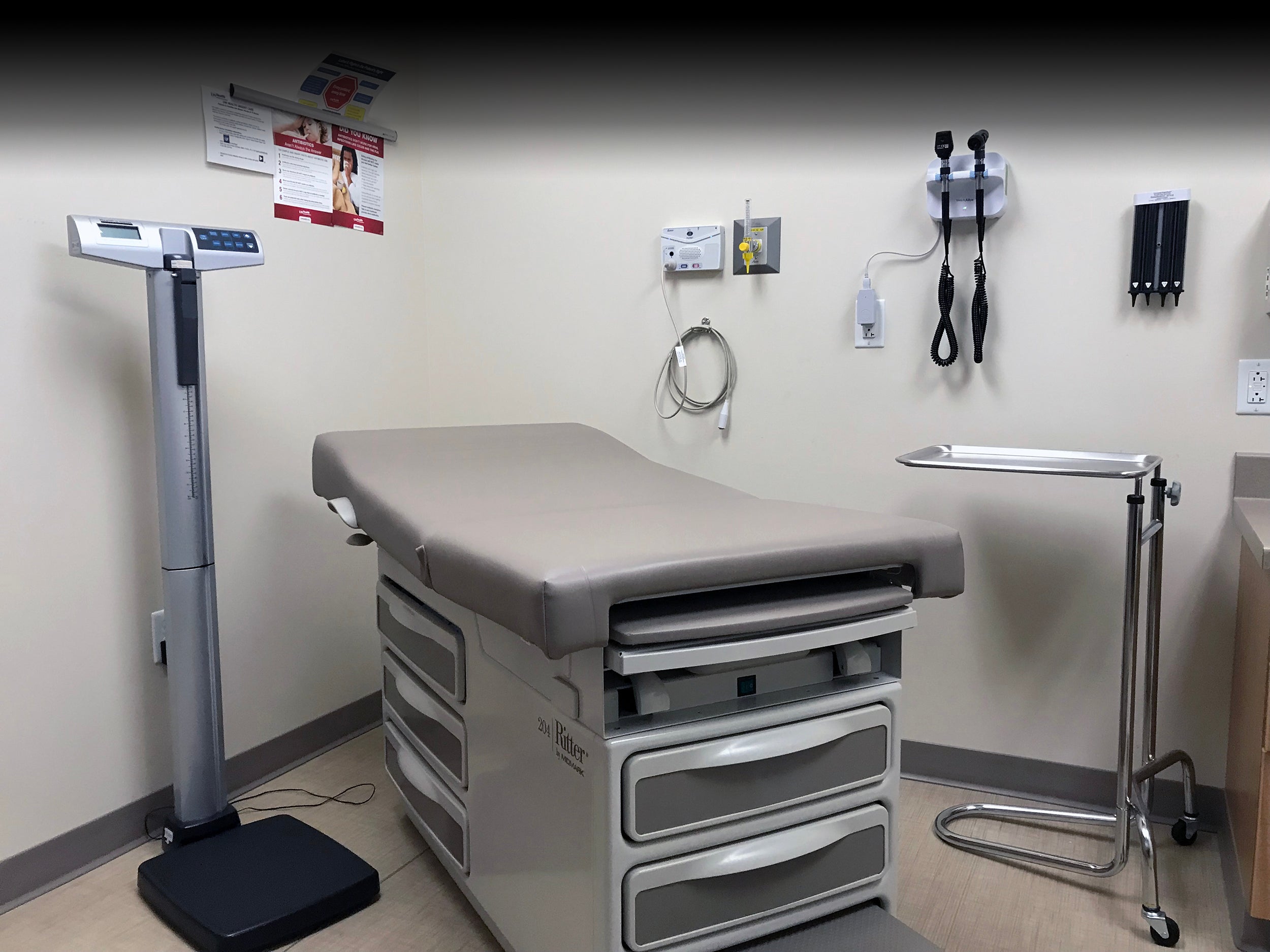Wisconsin Democrats proposed a package of bills Tuesday that would dramatically change the state’s health care system, while acknowledging the programs are unlikely to find support among Republicans who control the Legislature.
The bills cover a wide range of policies Democrats have long championed, from expanding the state’s Medicaid program to creating a public option for BadgerCare and finding ways to lower the price of prescription drugs.
“The governor has included provisions in every single one of his budgets that increase transparency, reduce prices, and protect consumers from outrageous out-of-pocket expenses,” Lt. Gov. Sara Rodriguez said. “But unfortunately, these provisions have been rejected by Republicans in the Legislature time and time again.”
News with a little more humanity
WPR’s “Wisconsin Today” newsletter keeps you connected to the state you love without feeling overwhelmed. No paywall. No agenda. No corporate filter.
Wisconsin is one of 10 states that has not expanded its Medicaid program since the Affordable Care Act took effect. Expanding Medicaid would make the state eligible for additional federal funds, including incentive funds included in the American Rescue Plan Act. A January memo by the Legislature’s nonpartisan budget office showed that not expanding Medicaid had cost the state roughly $2.1 billion since 2014.
The proposal would expand BadgerCare eligibility to 138 percent of the federal poverty level, which in 2023 equals $41,400 for a family of four or just over $27,000 for a married couple. Wisconsin currently offers Medicaid for residents up to 100 percent of the federal poverty level, which is just under $20,000 for a couple.
A recent study by the New York-based Commonwealth Fund showed that in states that have expanded Medicaid, “people who would otherwise be in the Medicaid coverage gap had increased health insurance coverage, lower rates of avoiding seeking medical care, and greater utilization of certain preventive care measures.”
Another bill would create a public option for BadgerCare to allow individuals and small businesses to purchase insurance on a state exchange. The public option would be available to those with income that exceeds the Medicaid threshold but is under 200 percent of the federal poverty level.
“Creating a public option for BadgerCare will provide Wisconsinites affordable health care options and increase access to care across our state,” said Rep. Supreme Moore Omokunde, D-Milwaukee, the measure’s sponsor. “We must prioritize ensuring all Wisconsinites have access to this quality, affordable healthcare no matter who they are or where they live.”
Two other bills aim to lower the cost of prescription drugs. One would create an affordability board to establish prescription drug spending targets and explore establishing price limits.
The other would create an insulin safety net program, import drugs from out of state, and direct the state’s commissioner of insurance to study the viability of creating a state entity to purchase prescription drugs, among other measures.
More than 1 in 4 Amercians who take prescription drugs report difficulty affording their medications, according to a recent Kaiser Family Foundation poll.
“Patients must be able to afford the medications they need without having to make those impossible choices between filling their prescriptions and paying their bills or putting food on their tables,” said the bill’s sponsor, Rep. Lisa Subeck, D-Madison.
While the plans have little chance of becoming law given the current power dynamic in state government, University of Wisconsin-Stevens Point Political Science Professor Emeritus Ed Miller said they should be viewed as a statement of Democratic priorities.
“It’s to put before the people the Democratic agenda,” Miller said. “And of course, there’s a hope that the Republicans may go along with some of these, since Republicans have been particularly against the increase in drug prices.”
Spokespersons for Assembly Speaker Robin Vos, R-Rochester, and Senate Majority Leader Devin LeMahieu, R-Oostburg, did not immediately respond to emails seeking comment on the health care package. Republicans have previously rejected the plans, saying expanding Medicaid amounts to expanding welfare.
Wisconsin Public Radio, © Copyright 2025, Board of Regents of the University of Wisconsin System and Wisconsin Educational Communications Board.






